OUR BOOK
A collection of refugee women’s texts about fleeing, surviving, the situation in refugee camps, and organizing for 20 years as a group of refugee women for freedom of movement and the abolishment of refugee camps.
This publication is a space for voices that are often silenced, voices speaking about 20 years of political activism in a self-organized initiative of refugee women*. It is collectively written by Women in Exile and includes contributions by members of the group, our friends, sisters, children, and supporters. It is written on smartphones, paper or Laptops, in refugee Camps and safe Spaces. The publication talks about our history and how we came together as a group. How we have built intersectional bridges within our group and beyond, bridges of solidarity that we keep on building despite our differences.
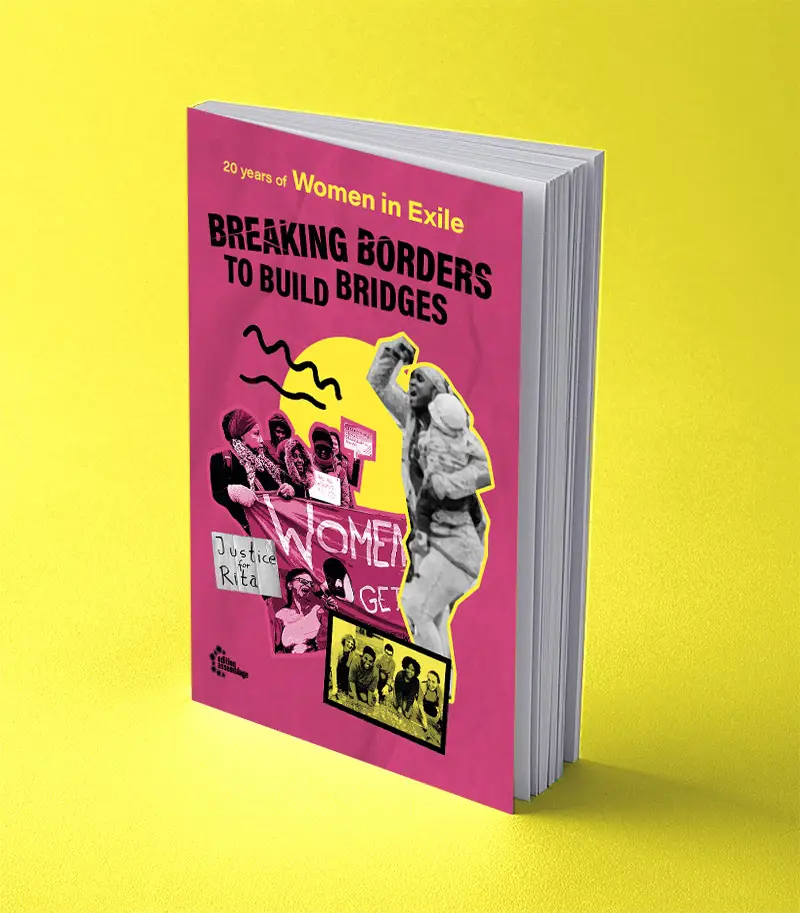
Book Readings & Events
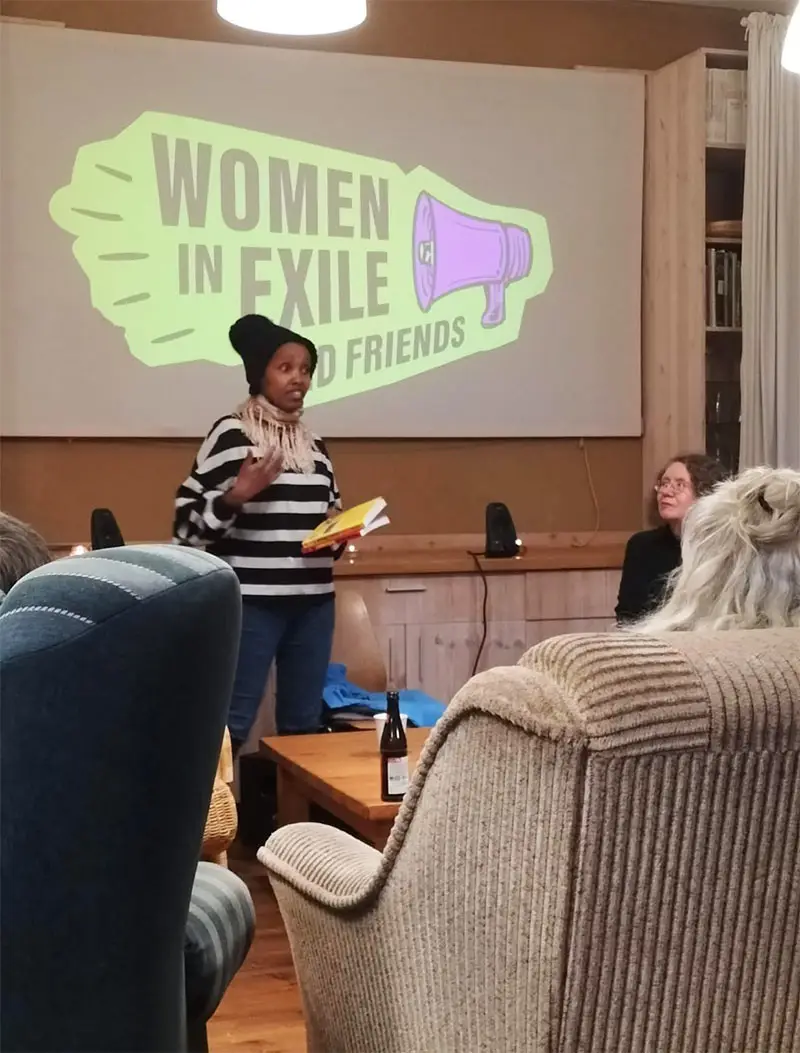
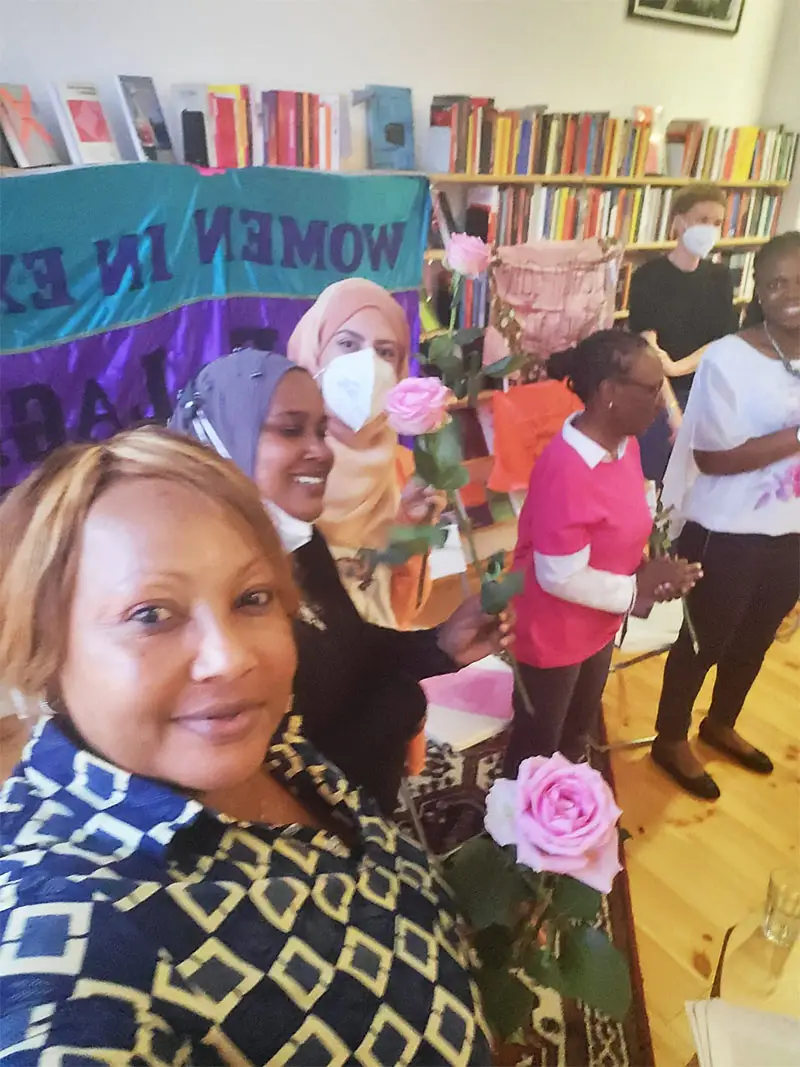
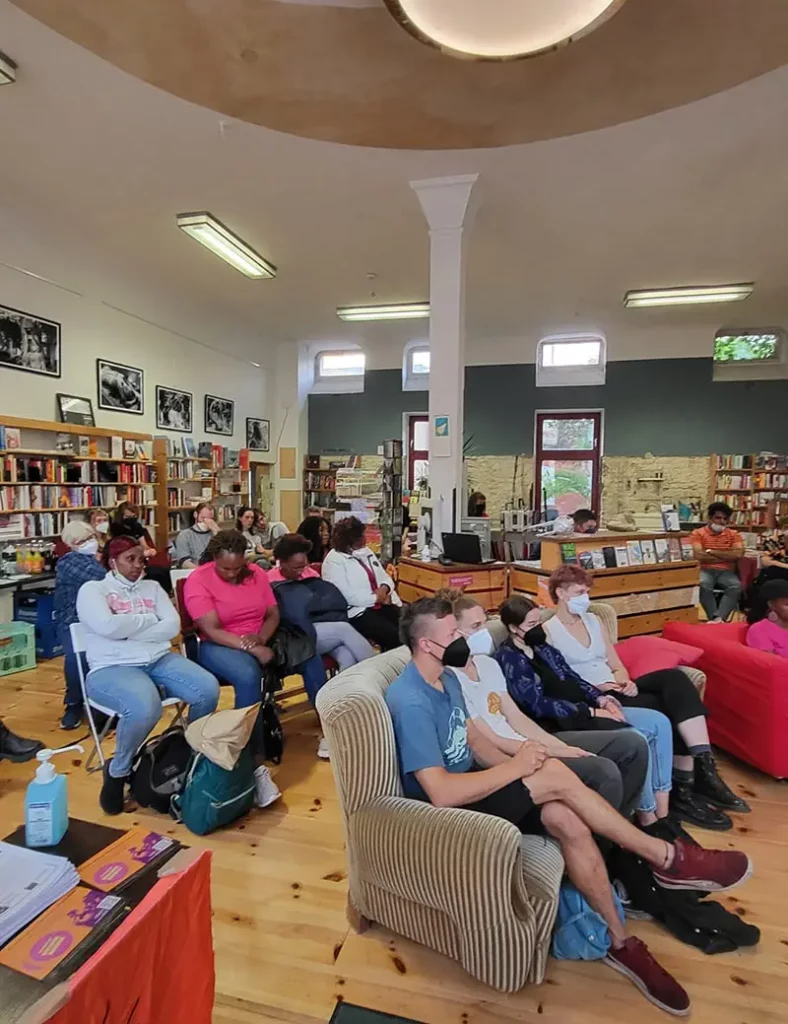
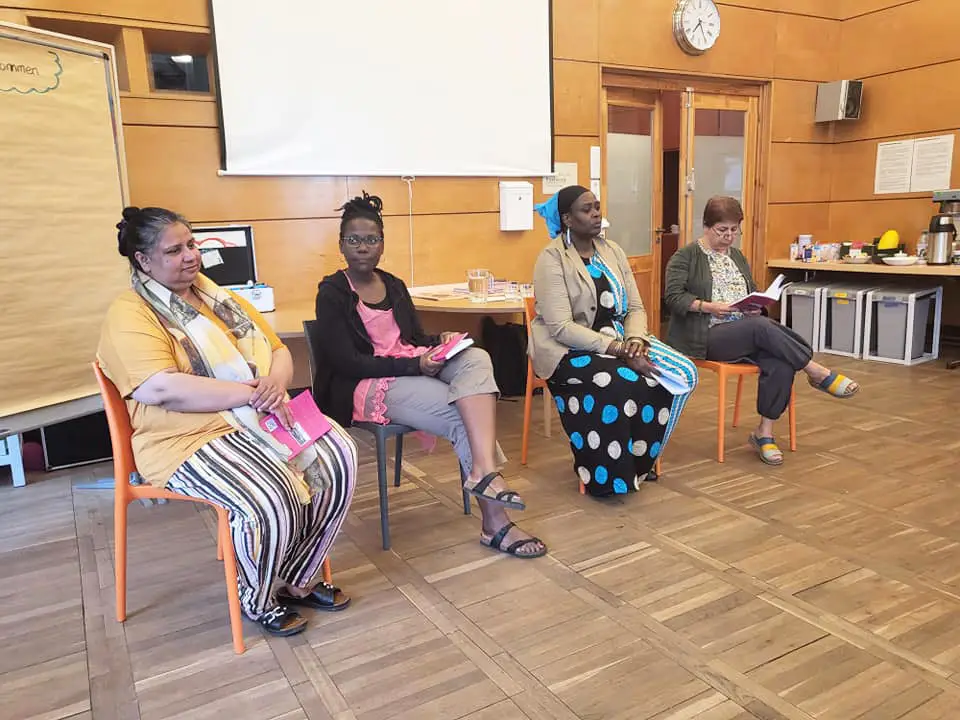
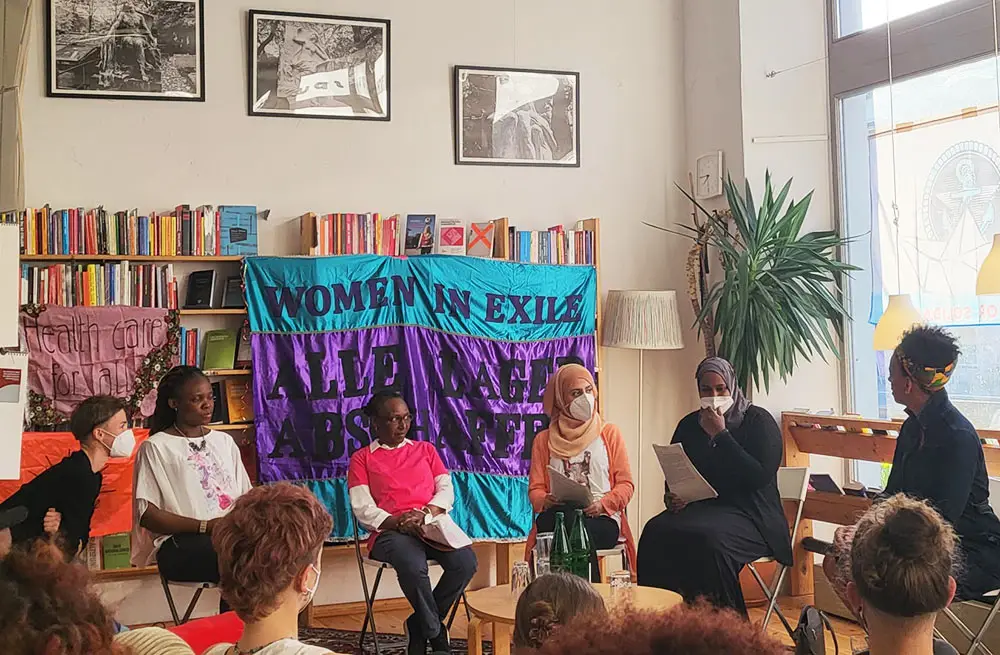
Excerpts From The Book
From Marjan’s story
“…we took to the streets and invited women* to chant slogans together with us: that we’re all human and should live as equals, that no one is superior, and that we all have the right to a good life. Sometimes we partied and danced together and were happy, and ate together – it was most enjoyable. Unforgettable. All this was important to me, and it was the first time I saw how powerful the women* in this group are.”
— Marjan, from Afghanistan, lived in Germany 6 years
Read More Here
On racism in Mecklenburg-Vorpommern
“In Mecklenburg-Vorpommern (M-V), asylum seekers are forced to live in outlying areas, on the outskirts or in remote towns. Entrenched Nazi structures and everyday racism (from abuse through to attacks) are just as much a problem as the restrictive immigration authority and the entanglement of the police and the Interior Ministry in the right-wing prepper scene. Those who fight against racism in M-V often don’t know where to start. Women in Exile visited M-V in the summer of 2021 and brought the answer with them: we’ll start right here and now. Without compromises, loud and in mutual solidarity. A Nazi obstructs the Solibus with his car and shouts abuse? No problem, 20 women* are louder.”
Read More Here
From an interview with ‘friends’ of Women in Exile, i.e. people in the organising group without a refugee background
“What advice would you give to other activists without a refugee background who want to organise with activists with a refugee history?
Annette: It is important to always question: Am I open? Do I see myself from the perspective of a support person without refugee experience? Do I reflect on my privileges, do I reflect on my own behaviour? Can I perceive and communicate my own boundaries? Do I myself have an open mind, see differences as a challenge by which we can learn from each other? For example, knowing that everyone has competencies and life experiences that can be very different from mine. To engage with them without judging, but listening and appreciating.
Peer: If you want to organise an event or a meeting, make sure that the framework conditions are right: Childcare, food, travel costs, is there public transport on that day/time, sleeping places, etc.?
Annette: Make sure there are good translations, plan space and time for this. At larger meetings, form small groups in between with the same focus and/or similar composition, so that women can talk in what they consider a “safe space”, different opinions on a topic can arise and women in small groups are more likely to have their say.”